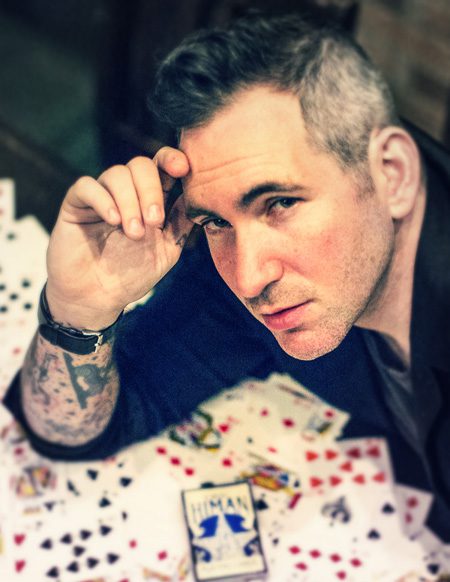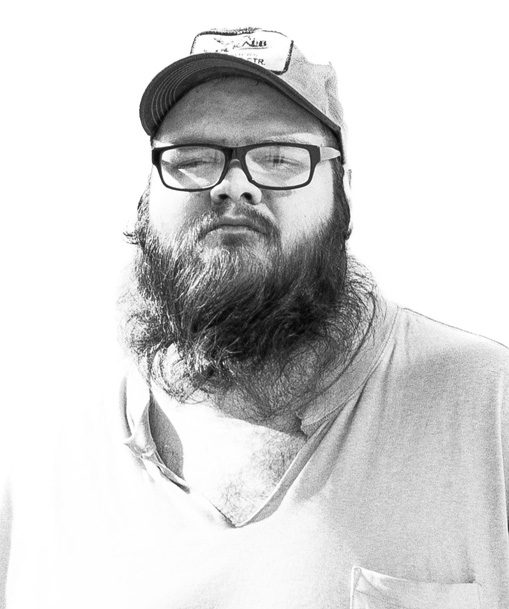The Need For Support
“Support, support, support” – this is what Branjae emphasizes as she explains what Tulsa in particular and Oklahoma in general needs to establish itself on the musical map. It might entail everything from sharing music online to buying concert tickets, but it is vital that it takes root at the beginning of artists’ careers – not just after they have moved away, found success and returned as hometown heroes, she says.

“I think it really would take the majority of Oklahomans to really respect the music and the artistry that’s happening in Oklahoma and look at it as real and look at it as something that should be paid for, something that should be elevated to the same level as anything that they’re hearing on the radio or what they see on the Grammys or anything like that,” she says.
The constant commercial need to build and maintain an appreciative audience, so often at odds with the artistic motivations that compel creation of music in the first place, is acutely felt by those toiling away in the trenches of the industry, engaging in all manners of self-promotion just below the radar of mainstream visibility.
[pullquote]I think the reason I can successfully keep writing albums is because my neighbors aren’t all musicians … They are artists and bartenders and lawyers and janitors and farmers.”[/pullquote]
“We all have that inner battle, where it’s like, ‘Should I still be doing this? Is it even worth it?’” says Eric Himan, who also makes his home in Tulsa and draws from myriad influences, including soul. However, the pulse of 1980s pop – think Phil Collins – runs more audibly through his work, and he has a special place in his heart for Ani DiFranco.
“But then you meet your idol and they say something nice,” he says. “It’s this weird way the universe reinforces you.”
For Himan, that reinforcement came from meeting DiFranco, for whom he opened at Cain’s in October 2014.
It also comes from fans, without whose support – much of it financial, via the crowd-funding website PledgeMusic – his newest offering would not have been possible, he says.
The result, Playing Cards, represents a concerted effort to repay his contributors with a relatively unique listening experience – an EP split between polished, full-band numbers reflecting his usual mix of favorite sounds, and stripped-down acoustic versions of the same songs, all produced with greater sonic clarity than ever by Zac Maloy in Nashville.
“These songs have so many elements to them anyway, I thought how cool it would be to not give people one or the other, but to give them both,” he says.

With some 14 years of experience under his belt, Himan has known two worlds when it comes to music consumption: one in which people still bought albums, and the current environment in which people expect songs for free, often under the mistaken impression that those who create them are already set financially, he says.
Nostalgia for the CD era notwithstanding, Himan’s outlook – like that of so many other singer-songwriters – remains steadfastly hopeful.
[pullquote]When cities become these hubs where musicians flock, the music suffers. Everyone’s songs just start to sound alike and people become so comfortable and stagnant.”[/pullquote]
“So you have this idea of certain people wanting it for free, but the people who really treasure and respect what you do, which is a gift, they’re willing to spend as much money as it takes to help you get there,” he says.
He envisions Tulsa becoming a more attractive destination for musicians as more industry comes to the city. The growth of the Brady Arts District and plans for the Gathering Place suggest that this is already happening, he says. But he also acknowledges that a relative lack of industry comes with upsides.
“You can breathe out here,” he says.
So will Oklahoma City or Tulsa ever be in a position to truly compete with cities like Austin or Nashville?
“I’m not sure we want that anyway,” Moreland says. “If you go to Austin or Nashville and spend a while sitting in traffic, you might change your mind about that.”
Samantha Crain agrees.
“We certainly have the quality and possibly even the quantity, but I’m not sure how cities become music hubs, and, honestly, I try not to think about it much, because, selfishly, that isn’t what I necessarily want for OKC or Tulsa,” she says. “When cities become these hubs where musicians flock, the music suffers. Everyone’s songs just start to sound alike and people become so comfortable and stagnant. They no longer have the inspiration of different people and ways of life. Everyone just pats each other on the back and commiserates with each other. I personally don’t ever want that for myself.
“I think the reason I can successfully keep writing albums is because my neighbors aren’t all musicians,” she says. “They are artists and bartenders and lawyers and janitors and farmers.”
The artists, the lawyers, the farmers, everyone – they are all there, perhaps the greatest influence of all, their lives woven into the music of their home state, in the songs already cherished and the songs still waiting to be heard.























